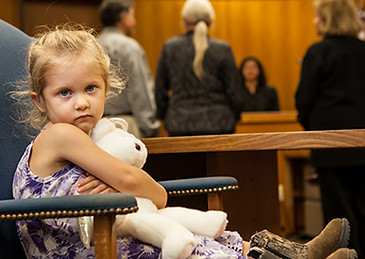Our Mission:
We provide every child in need with trained volunteer advocates to ensure they are safe, have a permanent home and the opportunity to thrive.
Our Vision:
Our community ensures every distressed child and family has a pathway to positive outcomes.
Organization Values:
Relationship Focused · Integrity · Excellence · Just and Equitable · Servant Leadership · Ambassadorship
Our Commitment to Diversity, Equity and Inclusion:
In order for CASA to fully accomplish its mission, our volunteers, staff and board will be cognizant of and sensitive to each child’s/family’s frame of reference, including their heritage, culture, ethnicity, religion, gender identity, socio-economic status, place of birth, disabilities, and/or family structure. Volunteers will be able to sensitively communicate with the child and their family and in turn appropriately communicate the child’s needs to the court while considering diversity, equity, and inclusion for each case.
CASA will strive to achieve a volunteer base, staff, and board of directors that reflects the diversity of children in the judicial and child welfare systems as well as its community. Volunteer service will be made accessible to all individuals regardless of gender identity, age (must be 21), ethnicity, socio-economic situation, or disability. Cultural awareness and competency is an integral component of all training for board, staff, and volunteers. Marion County is a diverse county with rural and urban areas.
CASA PROGRAM
Through our volunteers, CASA of Marion County, Inc. advocates for abused and neglected children who need safe and permanent homes.
Children in the child welfare system are disproportionately drawn from families living in poverty. Black and indigenous children are disproportionately placed in care.
Families most likely to be involved in the child protective services (CPS) system are poor, minority, and often single-parent families who live in low-income neighborhoods. Such families are at greater risk of involvement with CPS and entry into foster care due to many factors, including substance abuse and family structure instability. Together, this research confirms that foster children in general come from more disadvantaged environments. For more information, see Poverty among Foster Children: Estimates Using the Supplemental Poverty Measure.
CASA of Marion County serves children from marginalized communities by advocating for each child's specific, culturally-appropriate needs on a case-by-case basis.
CASA Volunteers are a caring and consistent
adult presence for abused and neglected children:
For many abused and neglected children facing multiple challenges, a CASA volunteer may be the one constant adult presence in their lives.
Advocates stay with each case until it is closed and the child is placed in a safe, permanent home.
CASA Programs use effective evidence-based practices: Independent studies have established that a child with a CASA volunteer is more likely to find a safe and permanent home; more likely to be adopted; half as likely to re-enter foster care; and substantially less likely to spend time in long-term foster care than children without a CASA volunteer.


HISTORY

In 1977, Judge David Soukup of Seattle, Washington realized that there was no one in the courtroom whose only job was to provide a voice for the child. He was consumed by the fact that very little information was provided about the child and didn’t know if he was doing the best job he could. He believed that volunteers, properly trained, could speak for the children and give judges better insight into the facts pertaining to the child. Through his efforts the first volunteer guardian "ad litem" program was established, which later became known as CASA.
The core components of Judge Soukup's pilot program are essentially the same today: judges appoint selected, well-trained volunteers to represent the best interests of children in court. CASA volunteers typically handle just one or two cases at a time so they can provide in-depth, first-hand documented information to judges, attorneys, and social workers to assist in sound decision making.
In 1987, the Oregon Legislature mandated that all abused and neglected children in Oregon should have a CASA (ORS 419B.112) and two pilot programs were started. This mandate requires CASAs investigate, advocate, facilitate and monitor their assigned cases. By 2000 every county in Oregon had a CASA program. In 2002, CASA of Marion County Inc. was incorporated as a Non-Profit corporation.
